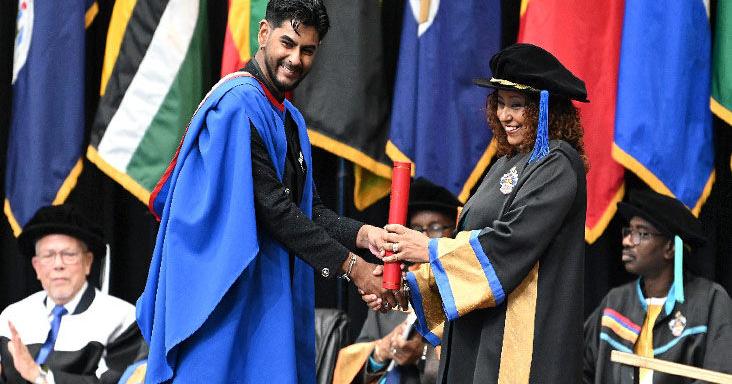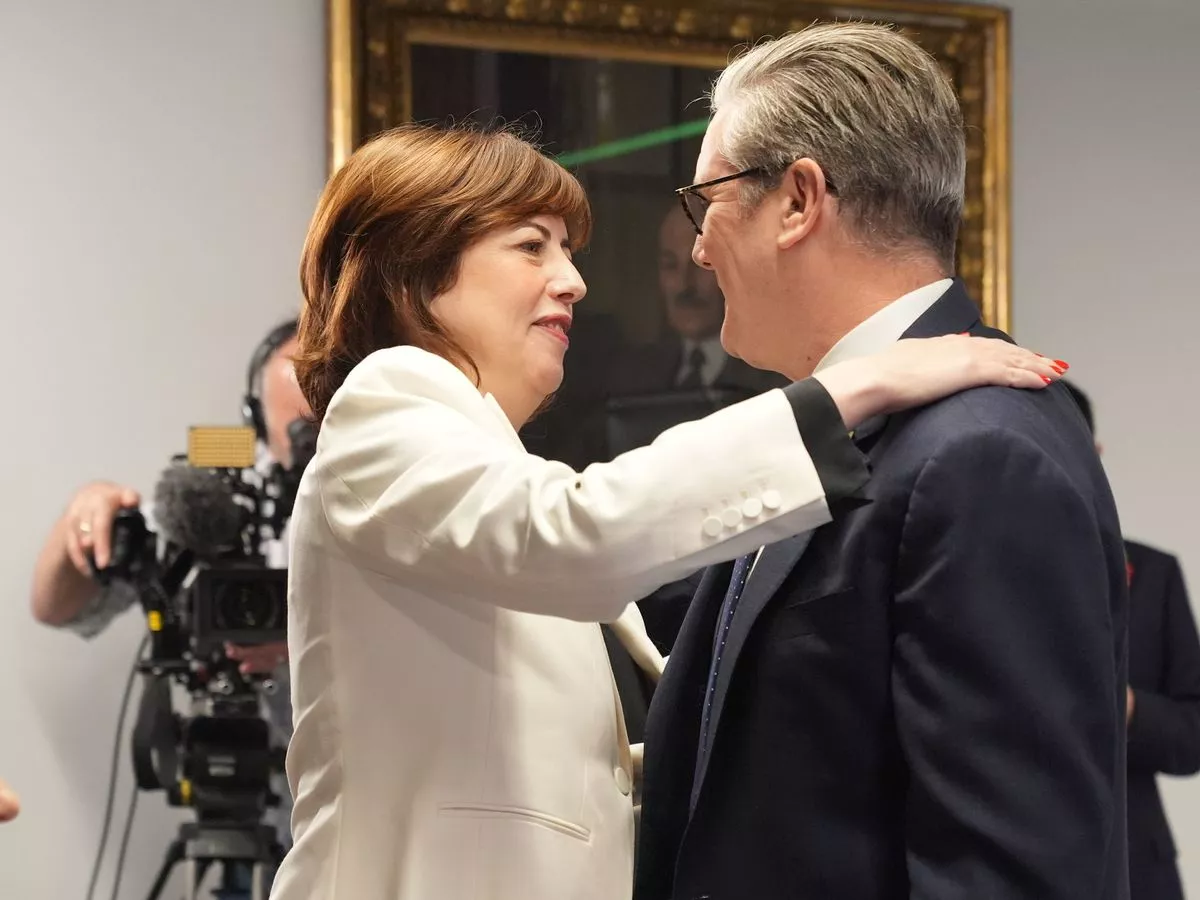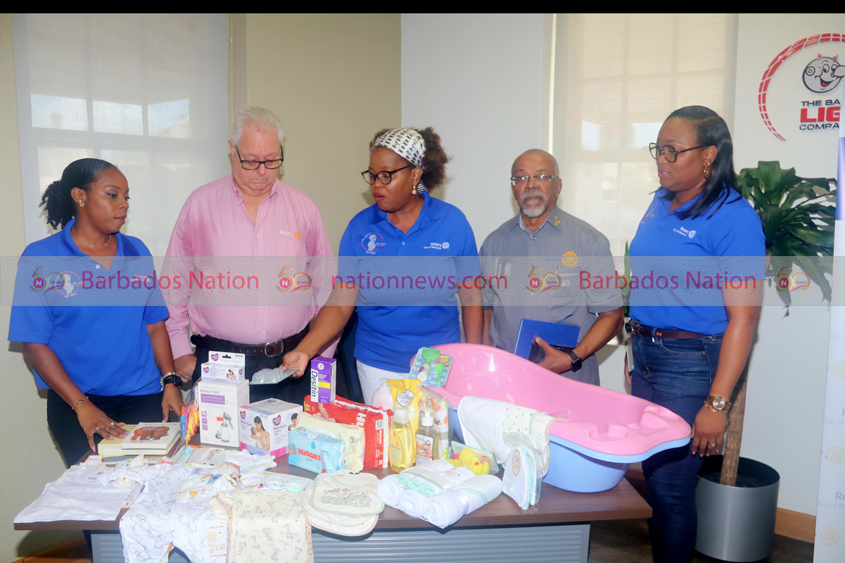Copyright trinidadexpress

Last week, while reading an article in this newspaper on this year’s University of the West Indies graduation ceremony, I paused at a line that struck me deeply. Valedictorian Josef Paty declared, “We enter a world that is ill-prepared for us.” As a strong advocate for youth development—and having written an entire series in this very column earlier this year on preparing the next generation for the world of work, I found his words both validating and sobering. The words resonated profoundly, confirming what I have long believed: that while our graduates are ready for the world, the world is not yet prepared for them. Amid the applause, caps, and gowns, his statement pierced through the ceremony’s ritual warmth and perhaps forced a nation to reflect on a larger truth: our systems are not ready for the future we keep saying we want. That moment captured something more profound than the personal triumph of an outstanding student. It revealed a generational dissonance—one where brilliant, qualified graduates stand at the threshold of an economy and society still struggling to evolve fast enough to meet their potential. A mirror to our readiness Paty, who earned First Class Honours in Geography and Environmental and Natural Resource Management, represents the kind of multidisciplinary, globally minded graduate the Caribbean needs to tackle its most urgent challenges—climate change, sustainability, innovation, and transformation. Yet even he recognised the paradox: a world yearning for solutions, yet lagging in preparedness to use the talent standing before it. His words struck a chord because they echo what many in academia, industry, and public policy may already know and what I explored in my April article, From Classroom to Boardroom: Aligning Education with Industry Needs. Then, I examined the persistent disconnect between what our education systems produce and what our economies actually demand. We continue to invest in education, yet struggle to translate learning into livelihoods. Young graduates enter a job market shaped by uncertainty, automation, and skill mismatch, a reality where enthusiasm meets inertia. The readiness gap When Paty said the world is “ill-prepared,” I assume he was not criticising education itself but rather the ecosystem around it—the sluggishness of industries to innovate, the lack of coordinated workforce planning, and the weak collaboration between business and academia. Across the Caribbean, youth unemployment rates hover stubbornly high, while many employers lament the scarcity of “work-ready” talent. The contradiction is painful: thousands of educated young people eager to contribute, and yet economies are unable to absorb them efficiently. This readiness gap isn’t unique to Trinidad and Tobago. Globally, the World Economic Forum notes that over 40% of employers struggle to find the skills they need. The International Labour Organisation warns that one in four young people in developing economies remains underemployed or jobless, despite holding tertiary qualifications. Education, in its current form, still too often prepares students for the past rather than the possibilities of tomorrow. Curricula remain slow to evolve. Internships, mentorships, and real-world learning opportunities are sporadic. And industries, particularly in the Caribbean, often underestimate their own role in developing talent. The classroom-to-industry disconnect In my earlier article, I called for a “future-focused learning ecosystem”—one that embeds career readiness, critical thinking, and adaptability from school through to work. Paty’s words validate that call. We cannot expect graduates to “fit” into systems that refuse to modernise. Nor can we continue treating workforce readiness as an optional extra rather than an economic imperative. The classroom must no longer be an isolated space for theory, but a living laboratory for applied learning, digital literacy, entrepreneurship, and global citizenship. Meanwhile, employers must move beyond the transactional hiring model and become active partners in shaping curricula, offering apprenticeships, and mentoring students long before graduation day. This partnership is not charity; it’s a strategy. It ensures that what we teach aligns with what we need and that education becomes a driver of innovation rather than a delayed reaction to it. Reframing the narrative Paty’s statement also forces us to ask an uncomfortable question: What if the problem isn’t that graduates are unprepared, but that the world they inherit is underdeveloped in imagination? Perhaps it is not the youth who must “adjust” to a broken system, but the system that must reinvent itself to accommodate the aspirations, energy, and intelligence of a new generation. Too often, we measure readiness by the wrong metrics—years of experience, rigid qualifications, or outdated job descriptions—rather than by curiosity, adaptability, and a capacity for lifelong learning. The truth is, the modern workforce no longer belongs to those who merely know, but to those who can learn, unlearn, and relearn. What preparedness should look like Preparedness means anticipating change rather than reacting to it. It means bridging the divide between education and employment, aligning research with industrial strategy, and equipping students not only with knowledge but with the confidence and opportunity to apply it. We must strengthen career and technical education (CTE) pathways, expand internship networks, and integrate digital skills into every level of the curriculum. Universities should form Industry Advisory Boards to co-design programmes that respond directly to emerging market demands for renewable energy, AI, sustainable agriculture, data science, and logistics. Employers, too, must reimagine their social responsibility. Investing in graduate development, sponsoring student projects, or opening their doors to apprenticeships are not expenses; they’re insurance policies for the future competitiveness of their sectors. Turning awareness into action If we take Josef Paty’s words seriously, then we must accept that readiness is a shared responsibility. Government policy must provide the enabling environment; academia must provide the intellect; and industry must provide the opportunity. Each has a role in transforming education from an endpoint to a launchpad—one that propels graduates into meaningful, future-ready work. This is not merely about jobs. It is about dignity, purpose, and inclusion. It is about recognising that education is not just an investment in human capital, but in national resilience. The graduation season reflection This reflection comes at a timely moment. Across Trinidad and Tobago, it is graduation season. Thousands of bright, hopeful graduates are about to enter the job market, résumés polished, dreams alive, ambitions soaring. And yet, how many of them may be thinking like Josef Paty? How many, even as they celebrate their achievements, quietly wonder whether the world beyond the auditorium doors is genuinely ready for them? It’s a poignant question and one we must not ignore. Because readiness is not just about equipping graduates with employable skills; it’s about building systems worthy of their talent. Building a world worthy of its graduates Readiness is not a static state. It is an act of continuous transformation. As we celebrate our graduates, we must also commit to reimagining the systems they inherit. The world may indeed be ill-prepared for them today, but that is no excuse for it to remain so tomorrow. The actual test of progress lies not in how many degrees we produce, but in how many lives we empower to shape a better future. And in that, Josef Paty’s challenge is not only to his peers—it is to all of us. Dr Phyllis Moreau, Change Management / HR Consultant “We enter a world that is ill-prepared for us.” A challenge not of despair, but of purpose — to build a world ready for the brilliance it creates. — Inspired by Josef Paty, UWI Valedictorian 2025



